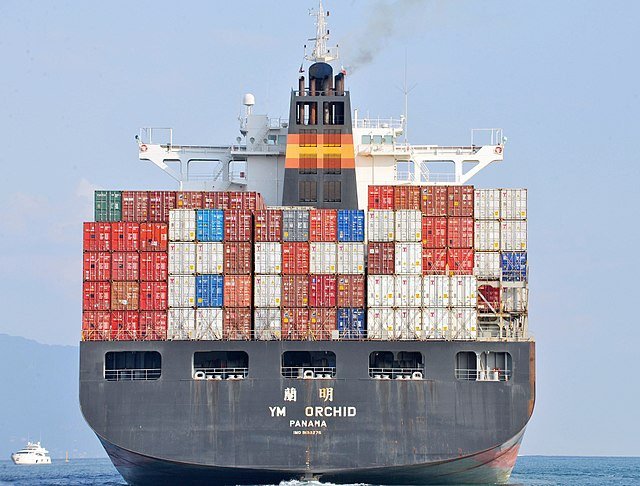A Chinese bulk carrier, the Yi Peng 3, is under scrutiny after being linked to the severing of two vital undersea internet cables in the Baltic Sea. Western officials suspect the incident may have been orchestrated by Russian intelligence. The cables, crucial for communication between European nations, were damaged on November 17 and 18, raising alarm over escalating hybrid warfare in the region.
Investigators believe the Yi Peng 3 dragged its anchor for over 100 miles, severing a 730-mile fiber-optic cable connecting central Europe to Finland and another linking Germany to Finland. A senior European investigator told the Wall Street Journal, "It's extremely unlikely that the captain would not have noticed that his ship dropped and dragged its anchor, losing speed for hours and cutting cables on the way."
This suspected sabotage has intensified geopolitical tensions in the Baltic Sea, a region of strategic importance following Russia's invasion of Ukraine. NATO warships have surrounded the Yi Peng 3 in international waters near Sweden, as authorities negotiate with the vessel's owner for access to the ship and its crew. Under international maritime law, NATO ships cannot force the vessel to dock without the owner's consent.
While Western officials do not directly accuse Beijing, they suspect the operation was planned by Russian intelligence agencies. Kremlin spokesperson Dmitry Peskov called the allegations "absurd, unsubstantiated accusations." The incident is the latest in a series of attacks on critical infrastructure in the Baltic region. Last year, explosions damaged the Nord Stream pipelines, and a gas pipeline between Finland and Estonia was also disrupted, with varying levels of attribution to Russia, Ukraine, and others.
Swedish Prime Minister Ulf Kristersson addressed the incident, stating, "We are not making any accusations but seeking clarity on what has happened." Swedish authorities have requested the Yi Peng 3 move closer to their waters for further inspection. Meanwhile, the Chinese foreign ministry has denied involvement, with spokesperson Mao Ning stating that Beijing is maintaining communication with relevant parties through diplomatic channels.
German Defense Minister Boris Pistorius highlighted the likelihood of intentional sabotage. "No one believes that these cables were cut accidentally," Pistorius said. Analysts emphasize the region's strategic significance, noting that nearly all Baltic-bordering nations are NATO members, aside from Russia's Kaliningrad exclave.
The undersea cables, which carry 99% of the world's internet data, are critical to global communications but remain vulnerable to such attacks. The damage has disrupted services and raised alarms about the risks posed by hybrid warfare targeting infrastructure that underpins daily life.
The Yi Peng 3 was reportedly traveling from Russia's Ust-Luga port to Egypt's Port Said when the cables were severed. Satellite imagery shows the vessel accompanied by Danish and German naval ships near Helsingborg, Sweden. Investigators suspect the anchor was intentionally dropped, though a clear motive remains under investigation.
Calls for enhanced Baltic Sea security are growing. Polish Prime Minister Donald Tusk has proposed a specialized policing mission to protect critical infrastructure. "We share the assessment of the security situation, including concern for critical infrastructure along the Baltic Sea," Tusk said at a press conference, joined by leaders from Denmark, Finland, Latvia, Norway, and Sweden.
Germany's foreign intelligence chief Bruno Kahl warned that such incidents could escalate into direct military confrontation, potentially triggering NATO's Article 5 mutual defense clause. "The increasing ramp-up of the Russian military means a direct military confrontation with NATO becomes one possible option for the Kremlin," Kahl said.
The suspected sabotage underscores the evolving nature of hybrid warfare and its implications for global security. As investigations continue, NATO members remain on high alert, emphasizing the need to safeguard the Baltic region from further destabilization.





